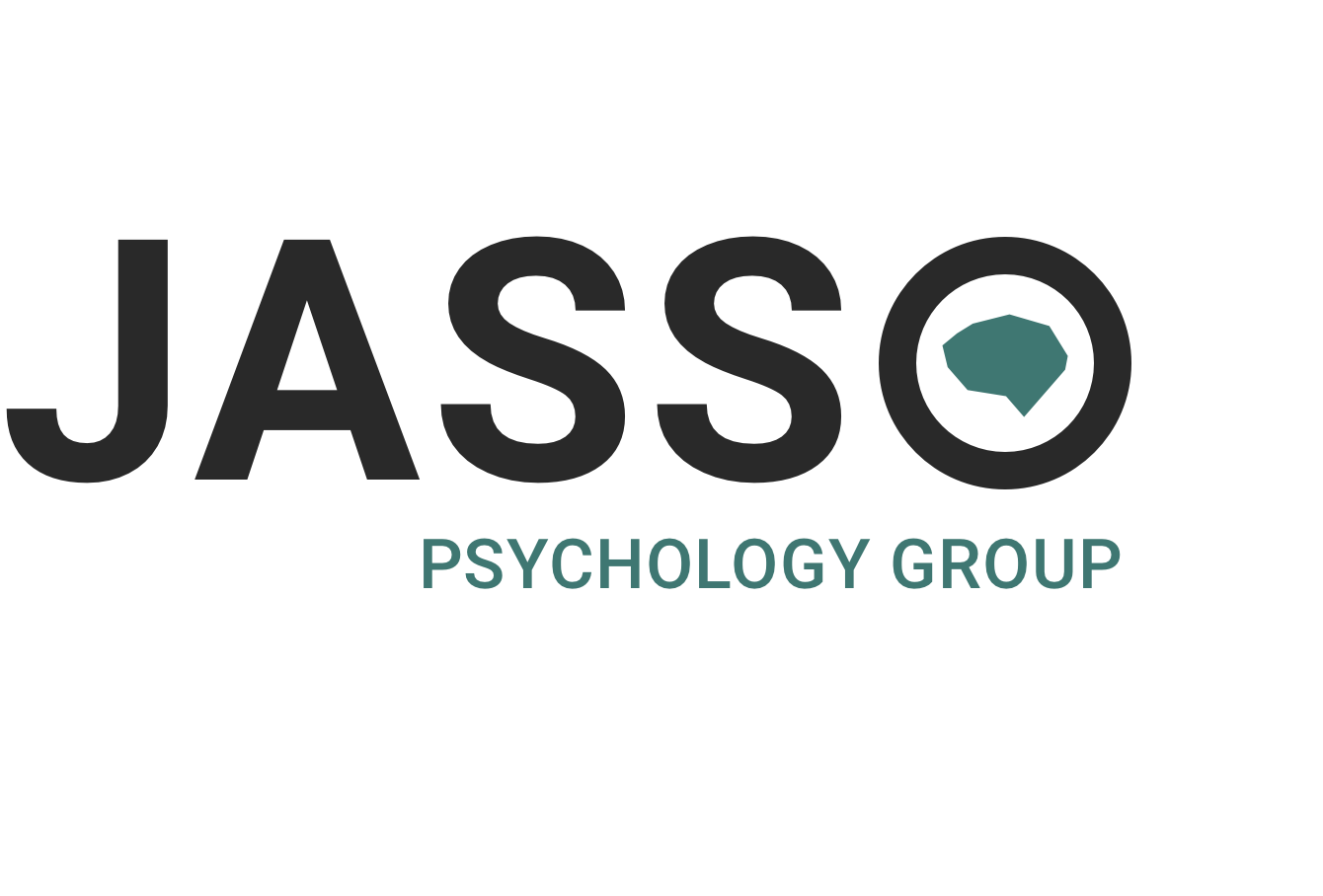
Immigration Experience that Speaks for Itself. Hablamos Español.
Jasso Psychology Group (“JPG”) has put together an ever-growing team of talented psychologists, psychological associates, and psychiatric technicians available to perform immigration evaluations via telemedicine. Jasso Psychology Group has over 10 years of experience conducting immigration evaluations. The use of telemedicine for immigration evaluations is rapidly gaining acceptance. It has been demonstrated as safe, efficient, and cost-effective, eliminating the time and expense of expert travel and security clearances and removing geographical limitations to expertise.
Why Jasso Psychology Group for Immigration Evaluations.
JPG provides psychological assessment, treatment, and diagnosis utilizing technological modalities in lieu of, or in addition to, traditional face-to-face methods. At JPG, we use a fully encrypted, HIPAA-compliant telecommunication technology to facilitate real-time videoconferencing between your client and our experts.
Telepsychology Services
JPG is available to perform a variety of immigration evaluations. We will work with you to optimize workflow and efficiency for your specific immigration evaluation needs. Contact us today to see how we can help. Call or text 214-674-0684. Our Telepsychology services include:
Hardships/waivers
U-Visa
VAWA
T-Visa
Asylum
N648
Disability
The advantages of JPG services include:
Immediate access to psychological services for individuals with physical, medical and/or mobility disabilities.
Immediate access to psychological services regardless of geographic area.
Immediate access to psychological services in areas with few mental health resources.
Flexible scheduling.
Faster response times to see patients during a mental health crisis.
Eliminate long wait times for all patients.
About Jasso Psychology Group
Dr. Gabriel Jasso is the Clinical Director at Jasso Psychology Group. He has a broad range of clinical experience in neuropsychological and psychological assessments and individual psychotherapy. Dr. Jasso’s experience in neuropsychology and psychology include assessments hardships/waivers, u-visa, vawa, t-visa, disability, and N648. His experience includes immigration evaluations over the last 10 years. Due to his educational experience in the legal setting, Dr. Jasso provides expert clinical opinions in both civil and criminal matters. Additionally, he has a certificate of achievement to provide neuropsychological assessments for the visually impaired. All services provided by Dr. Jasso and his staff are in both English and Spanish.
Dr. Jasso is a Texas licensed psychologist. He earned a doctorate and masters of arts degree in Clinical Psychology from the Texas School of Professional Psychology in Dallas, Texas. Dr. Jasso completed a pre-doctoral internship where he acquired clinical skills as a psychologist. Soon after, he completed a two-year post-doctoral residency in clinical neuropsychology where he focused his training in providing neuropsychological assessments to brain injury patients. Additionally, Dr. Jasso earned a master of arts degree in Legal Studies and a bachelor of arts degree in Anthropology both from Texas State University in San Marcos, Texas. His clinical research includes exploring intelligence levels, and the role learning disorders and legal history play in the homeless population. He is board certified by the American Board of Disability Analysts. He is board certified by the American Board of Behavioral Healthcare Practice. Dr. Jasso is a Clinical Associate with the American Board of Medical Psychotherapists.
Dr. Jasso holds the Interjurisdictional Practice Certificate (mobility number 7375) issued by the Association of State and Provincial Psychology Board. He has been approved to practice telepsychology in Alabama, Arizona, Arkansas, Commonwealth of the Northern Mariana Islands, Colorado, Connecticut, Delaware, District of Columbia, Florida, Georgia, Idaho, Illinois, Indiana, Kansas, Kentucky, Maine, Maryland, Michigan, Minnesota, Mississippi, Missouri, Nebraska, Nevada, New Hampshire, New Jersey, North Carolina, North Dakota, Ohio, Oklahoma, Pennsylvania, Rhode Island, South Carolina, South Dakota, Tennessee, Texas, Utah, Virginia, Vermont, Washington, West Virginia, Wisconsin and Wyoming.
References
American Educational Research Association, American Psychological Association, & National Council on Measurement in Education. (current edition). Standards for educational and psychological testing. Washington, DC: American Psychological Association.
American Psychological Association (2002a). Ethical principles of psychologists and code of conduct. American Psychologist , 57, 1060-1073.
American Psychological Association (2002b). Criteria for practice guideline development and evaluation. American Psychologist , 57, 1048-1051.
American Psychological Association. 2008. Center for Workforce Studies. Retrieved from http://www.apa.org/workforce/publications/08-hsp/telepsychology/index.aspx .
American Psychological Association (2010). 2010 Amendments to the 2001 “Ethical principles of psychologists and code of conduct.” American Psychologist , 65, 493.
American Psychological Association (2003). Guidelines on multicultural education, training, research, practice, and organizational change for psychologists. American Psychologist , 58 , 377-402.
American Psychological Association (2007). Record keeping guidelines. American Psychologist , 62, 993-1004.
American Psychological Association Practice Organization. (2010). Telehealth: Legal basics for psychologists. Good Practice, 41 , 2-7.
American Psychological Association Practice Organization. (2012). Social Media: What's your policy. Good Practice, Spring/Summer , 10-18.
Baker, D. C., & Bufka, L. F. (2011). Preparing for the telehealth world: Navigating legal, regulatory, reimbursement, and ethical issues in an electronic age. Professional Psychology: Research and Practice , 42 (6), 405-411.
Canadian Psychological Association: Ethical guidelines for psychologists providing services via electronic media. (2006). Retrieved from http://www.cpa.ca/aboutcpa/committees/ethics/psychserviceselectronically/ .
Committee on National Security Systems. (2010). National Information Assurance Glossary . Washington, DC: Author.
Ohio Psychological Association: Telepsychology guidelines. (2010). Retrieved from http://www.ohpsych.org/psychologists/files/2011/06/OPATelepsychologyGuidelines41710.pdf .
New Zealand Psychological Association: Draft Guidelines: Psychology services delivered via the Internet and other electronic media. (2011). Retrieved from http://psychologistsboard.org.nz/cms_show_download.php?id=141.
Reed, G. M., McLaughlin, C.J., & Millholland, K. (2000). Ten interdisciplinary principles for professional practice in telehealth: Implications for psychology. Professional Psychology: Research and Practice , 31 (2), 170-178.
U.S. Department of Health and Human Services, Health Resources and Services Administration. (2010). Special Report to the Senate Appropriations Committee: Telehealth Licensure Report. Washington, DC: Author.
U.S. Department of Commerce, National Institute of Standards and Technology. (2011). A Glossary of Key Information Security Terms. Washington, DC: Author.
U.S. Department of Commerce, National Institute of Standards and Technology. (2008). An Introductory Resource Guide for Implementing the Health Insurance Portability and Accountability Act (HIPAA) Security Rule. Washington, DC: Author.



